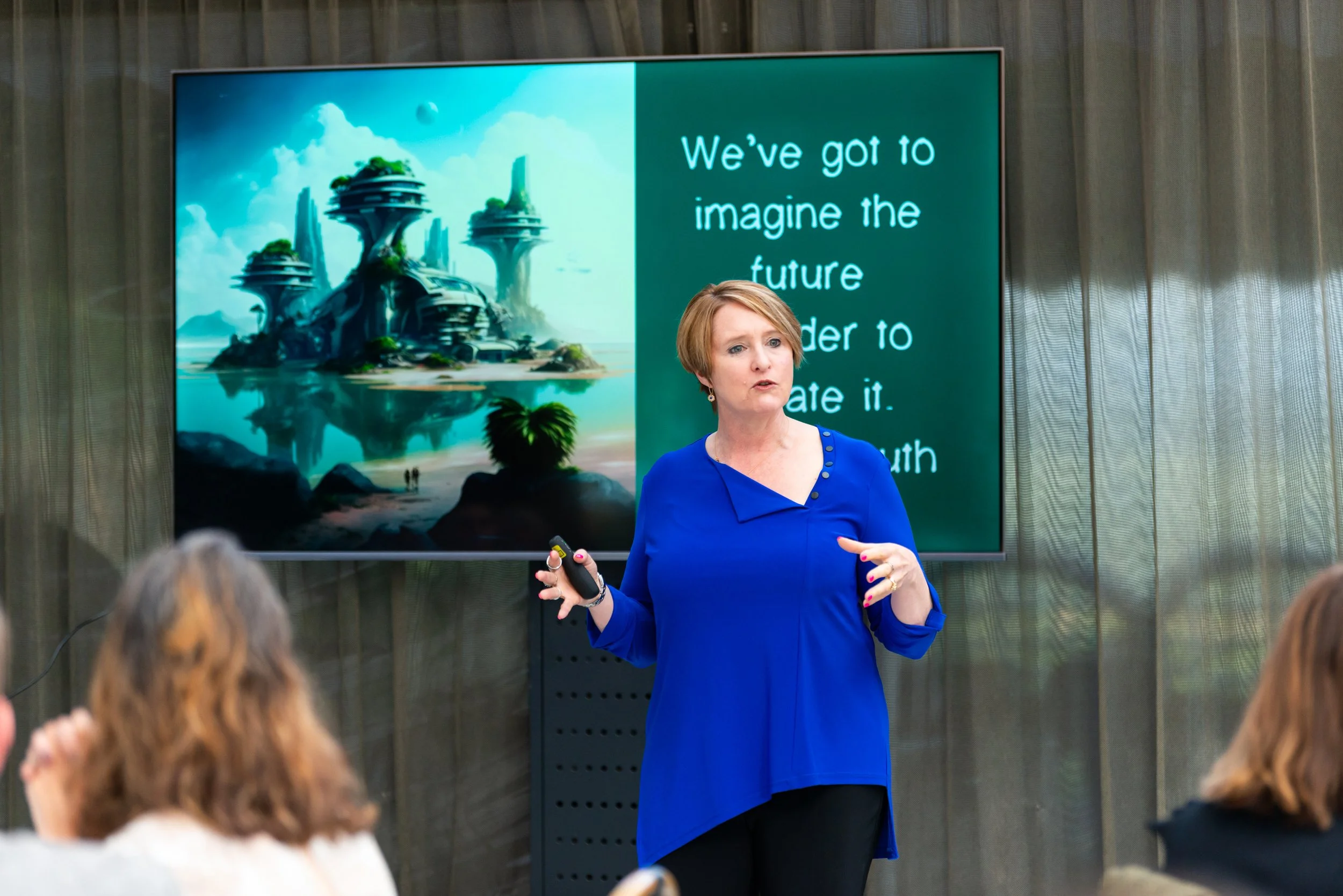In these tumultuous times, the future of leadership is COLLABORATION. With such complex challenges, we need to build coalitions not factions.
But leaders often get it wrong. Here are some tips and insights to help you collaborate better.
Secret 1. Cooperation Is Not Collaboration.
It may look like they are collaborating, but cooperating means only that people keep doing their own thing without getting in the way of others. True collaboration means building something together, challenging each other's ideas while deeply respecting each other's point of view. If you're the boss, keep this in mind: you are not infallible (I know, it seems implausible that you might make a mistake, but there is a still a chance, however minute).
Secret 2. Power Is Always At The Table.
Until we have a common understanding and language of how power shows up and is deployed in our groups, then we will continue to suffer toxic power battles. Let's get real about power. If you're in charge, you wear a Crown, and it changes how people deal with you. Don't let it go to your head, or that Crown will struggle to rest easy on your brow.
Secret 3. When We Bring Ideas, We Bring Worldviews.
We cannot solve complex problems without knowing how our worldview shapes our perception and priorities. Surface this and then we have a chance of seeing better solutions. Know your values and priorities: they shape how you perceive a problem (and might miss the solution).
Insight: Collaborative, flat groups still need structure.
Here is an excerpt from my latest book, out now for orders on Kickstarter, Power Games - A Leader's Guide to Office Politics and Drama-Free Collaboration.
[In collaborative groups,] Five aspects need to be monitored, and anyone in the group may elect or be nominated to take on one of these roles.
1. Deliverables
In this role, the individual holds the whole group to account and asks gritty, tangible questions, such as:
Do we have the resources to accomplish this goal?
Who will actually do the work?
Are we meeting our deadlines?
Is the quality up to scratch?
Who is and isn’t keeping their commitments?
What’s sliding through the cracks?
2. Big picture
This role monitors the group’s overall efforts and focus. The individual can ask questions such as:
Are we living and working by our values?
Are we making progress towards our vision?
What’s on the horizon that may assist or hinder us?
What are the internal and external factors that may get in
our way?
3. Process
Not for the faint-hearted, this role tackles process and how the group is treating its obligations and each other. The individual might check and highlight things such as the following:
Healthy power structures in teams
increased emotional temperature on issues and discussions
surreptitious Power Games such as gossip, back-channelling
and undermining
groupthink and echo chambers that keep new ideas at bay
inappropriate behaviour
breaches of the Code of Conduct and Code of Ethics.
4. Communication
The role acts as a connector. The individual asks questions like,
‘Who needs to know about this?’, ‘Who needs to be consulted?’
and ‘Who will be affected by this?’ By ensuring the messages are clear and distributed effectively across the right channels, the communication role minimises gossip, innuendo and assumptions between team members, and with stakeholders and those outside the organisation.
5. Energy
This is the cultural pulse-checker of the group. The individual may be called on to lead the drive, enthusiasm and dynamic nature of the group. The person in this role keeps the group positive and focused on welcoming new members, ensuring the ease of belonging and inclusion, and leading celebrations and acknowledgment of individual and team efforts.
Collaboration is hard. With strong group structure and processes, we can do it better.
Live with grace, lead in service.
Zoë
Learn more about Collaboration in Power Games: A leader’s Guide to Office Politics and Drama-Free Collaboration.
P.S. Want more insights on the Future of Leadership?
Each month get additional insider only resources including discussion questions, water cooler factoids, implementation tip sheets/checklists/worksheets.
Zoë Routh is a leadership futurist, podcaster, and multiple award-winning author. She works with leaders and teams to explore what's coming and what it means for leadership of the future.
Zoë is an outdoor adventurist and enjoys telemark skiing, has run 6 marathons, is a one-time belly-dancer, has survived cancer, and loves hiking in the high country. She is married to a gorgeous Aussie and is a self-confessed dark chocolate addict.


